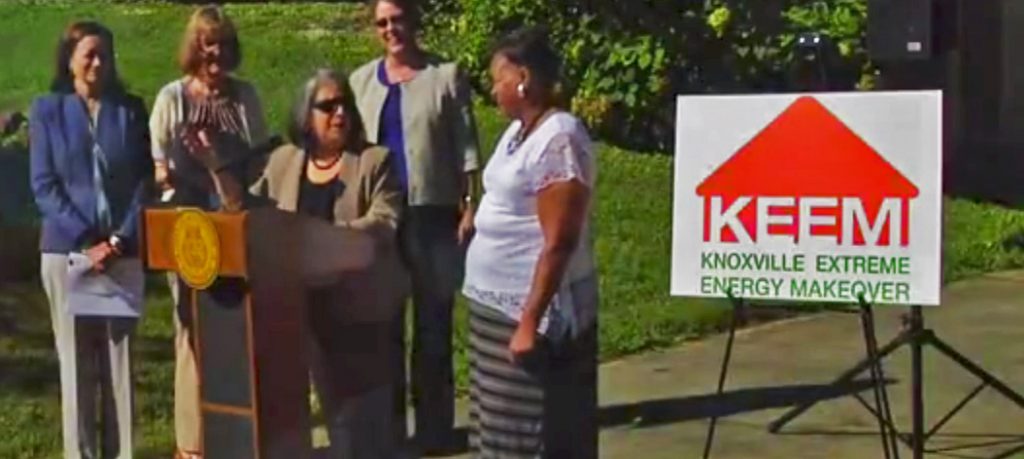Front Porch Blog
Updates from Appalachia

Weatherizing Tennessee homes gets results
TVA is delivering millions of dollars in grants to communities in East Tennessee to start programs to help families weatherize their homes so they can stay warmer in the winter and cooler in the summer while saving money on their electric bill. People like Dorothy Ware of Knoxville.
EPA limits coal plants’ toxic discharges. Finally.
Finally, the EPA is taking action on cleaning up toxic wastewater discharges from the nation’s power plants. A new rule out this week updates standards from 32 years ago, which virtually granted license to utilities to discharge unlimited toxins into streams, rivers and lakes.
Two steps forward, one step back on coal ash in N.C.
North Carolina communities impacted by coal ash celebrated two positive strides forward recently, only to be disappointed by another fast move on the part of the N.C. Department of Environmental Quality and Duke Energy that keeps too many citizens in limbo in terms of resolving polluted drinking water.
Citizen stories counter coal industry deception
Citizens and clean water advocates used a series of hearings on the proposed Stream Protection Rule to demand improvements to the draft version and call out state agencies for repeatedly failing to enforce regulations already on the books. Coal industry representatives, on the other hand, relied on “war on coal” rhetoric and deception to rally against the rule.
Victory for public health in Duke Energy settlement
 After 15 years of legal wrangling with Duke Energy, federal lawyers have finally reached a settlement over charges the utility has been illegally emitting air pollution at several of its North Carolina power plants. Duke will have to close 13 of its coal-fired units by 2024. While that’s good news for its neighbors, there’s still the problem of polluted water from Duke’s coal ash ponds.
After 15 years of legal wrangling with Duke Energy, federal lawyers have finally reached a settlement over charges the utility has been illegally emitting air pollution at several of its North Carolina power plants. Duke will have to close 13 of its coal-fired units by 2024. While that’s good news for its neighbors, there’s still the problem of polluted water from Duke’s coal ash ponds.




